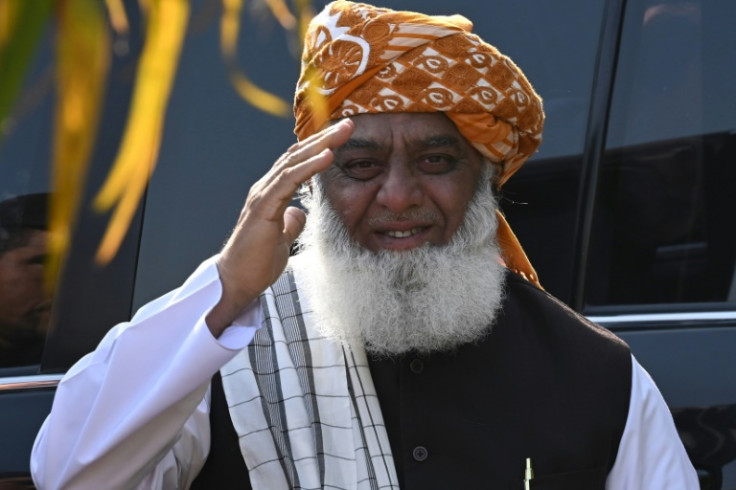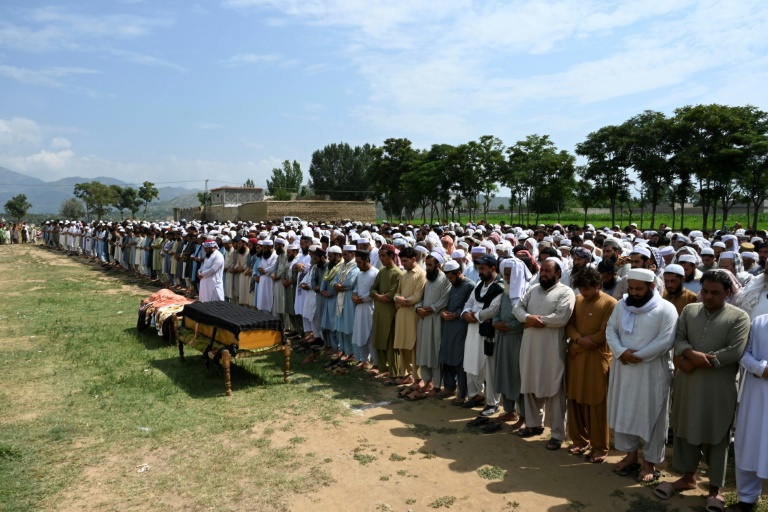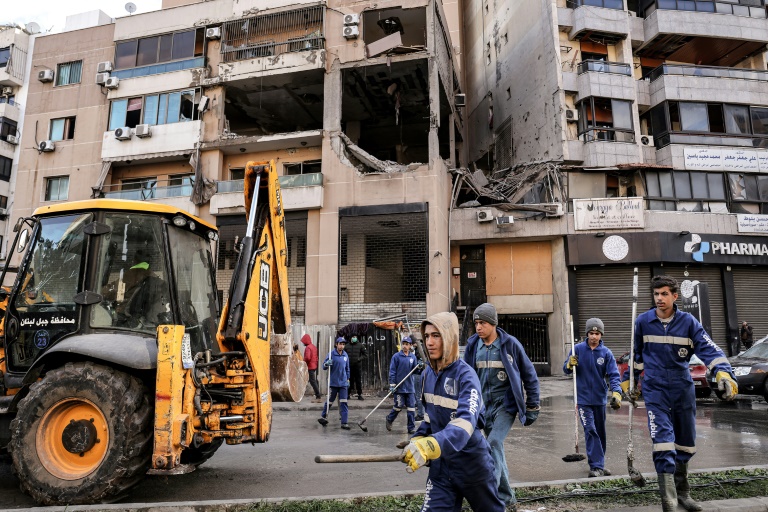AFP
The leader of an influential Pakistan political party called Tuesday for better state-provided security after an Islamic State suicide bomber killed 54 people — almost half of them children — at an election gathering.
Around 400 members of the Jamiat Ulema-e-Islam-F (JUI-F) party — a key government coalition partner — were meeting Sunday when a bomber detonated a vest packed with explosives and ball bearings.
JUI-F’s leader, firebrand cleric Fazl-ur-Rehman, questioned how such a “significant intelligence failure” could have occurred.
“The entire nation is turning to the state institutions responsible for its security,” he said in a statement posted to Twitter.
“Where are they? When will they listen to us? When will they heal our wounds? When will they establish a system that safeguards our future generations?”
Rehman said Jamiat Ulama-e-Islam was a peaceful party, “but even patience and endurance have their limits”.
“Nonetheless, I urge my supporters not to abandon patience and endurance,” he said.
Rehman started political life as a firebrand Islamist hardliner, and while his party continues to advocate for socially conservative policies, he has more recently forged alliances with secular rivals.
In the past, he has also helped facilitate talks between the government and Tehreek-e-Taliban Pakistan (TTP), an IS rival that has since 2007 waged a bloody campaign of bombings and other attacks across the country.
Sunday’s attack occurred in the town of Khar, 45 kilometres (28 miles) from the Afghan border, in an area where militancy has been rising since the Afghan Taliban — who are allied with but distinct from the TTP — took control of Kabul in 2021.
The blast has raised fears Pakistan could be in for a bloody election period following months of political chaos prompted by the ousting of Imran Khan as prime minister in April last year.
Parliament is likely to be dissolved after it completes its term in the next two weeks, with national elections to be held by mid-November.
Last year, IS said it was behind attacks against religious scholars affiliated with JUI-F, which has a huge network of mosques and schools in the north and west of Pakistan.
IS accuses the JUI-F of hypocrisy for being a religious party while supporting secular governments and the military.
While Rehman’s party never musters more than a dozen or so seats in parliament, it can be crucial in any coalition and his ability to mobilise tens of thousands of religious school students grants him additional clout.
Violence has been rising across Pakistan in recent months.
In January, a suicide bomber linked to Pakistan’s Taliban blew himself up in a mosque inside a police compound in the northwestern city of Peshawar, killing more than 80 officers.
Militant assaults have focused on regions abutting Afghanistan, and Islamabad alleges some are being planned on Afghan soil — a charge Kabul denies.

AFP






